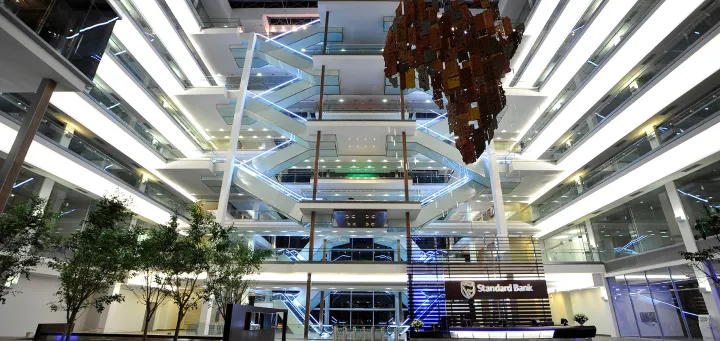MINING INDUSTRY ANALYSIS
Sibanye, Amcu sign five-year wage deal as union unrest declines in PGM sector

Diversified precious metals producer Sibanye-Stillwater said on Friday it had signed a five-year wage agreement with the Association of Mineworkers and Construction Union (Amcu) at its Rustenburg and Marikana platinum operations. This mirrors wage deals struck by its peers, signalling a welcome decline in union unrest in the sector.
It looked like a clash of titans, with Joseph Mathunjwa, the charismatic Amcu president, squaring off with Sibanye’s tough-talking CEO Neal Froneman, whose R300-million mostly share payout last year had unions seething.
In the end, it seems that Mathunjwa — who played a leading role in the tragic events at Marikana a decade ago and who led a five-month platinum strike in 2014 — blinked, and the mediated talks ended with a whimper instead of a bang. The result is a five-year wage agreement similar to those struck by Anglo American Platinum (Amplats) and Impala Platinum (Implats).
“This agreement with Amcu follows previous agreements reached with the National Union of Mineworkers (NUM) and Uasa on 30 September 2022 and marks the conclusion of the wage negotiation processes at the Marikana and Rustenburg operations,” Sibanye said in a statement on Friday.
“The final agreement is consistent with the previous five-year, inflation-linked offer, with the first three years still comprising fixed, average, annual wage increases of 6% and above for bargaining unit employees, but with increases for year four and five fixed at R1,300 (or 6%) in year four and R1,400 (or 6%) in year five, compared with the previous offer’s CPI-linked variable increases. Miners and artisans will receive average annual wage increases of 6% per annum for each of the five years,” Sibanye said.
Visit Daily Maverick’s home page for more news, analysis and investigations
With the Sibanye wage agreement wrapped up, things have never looked more stable in South Africa’s turbulent platinum group metals (PGM) sector, at least on the labour front. Virtually all of the production in South Africa, by a long shot the world’s top PGM producer, is locked into five-year wage agreements at a time when the sector is quite profitable.
Coming against the backdrop of a cost-of-living crisis and food and fuel inflation which is eroding the incomes of strapped working-class households, it also flies in the face of expectations that such a state of affairs should drive union militancy.
But the wages that mineworkers take home have come a long way in the past couple of decades, though social burdens undermine those gains.
As we reported in July, wage growth in the mining sector almost doubled the rate of inflation between 2001 and 2020. In 2001, the average earnings per employee per year stood at R59,874. By 2020, that had reached R335,096, a five-and-a-half-fold increase, according to Minerals Council data.
Of course, this comes off a grotesquely low base which was a reflection of the decadeslong exploitation of a mostly migrant labour force under colonialism and apartheid. A range of factors explains the growth in wages, including the efforts of unions over the years. The irony here is that having achieved such success, labour’s militant edge has been blunted.
It’s also the case that a cost-of-living crisis can make a union member think twice about downing tools in a protracted strike, given the pressing income needs in their households and wider kinship networks. Such a scenario can give business — or capital — a decided advantage at the bargaining table.
And in the case of Amcu, it has led its members in prolonged strikes in 2018/19 and earlier this year at Sibanye’s gold mines, with little to show for its efforts. Indeed, its rank and file were almost certainly worse off because of those ill-conceived industrial actions, and as they say in baseball, three strikes and you’re out.
Meanwhile, the mining sector has to contend with growing social unrest and criminality, which seems to have advanced while labour ructions have receded. Five-year wage agreements are no guarantee of stability in the sector. DM/BM



















Comments - Please login in order to comment.